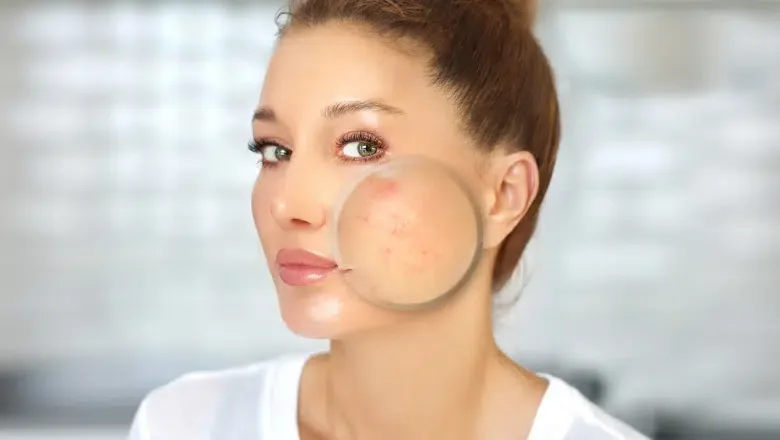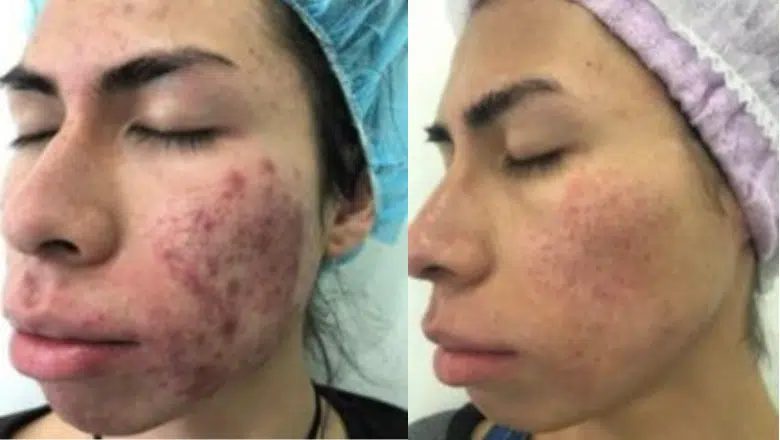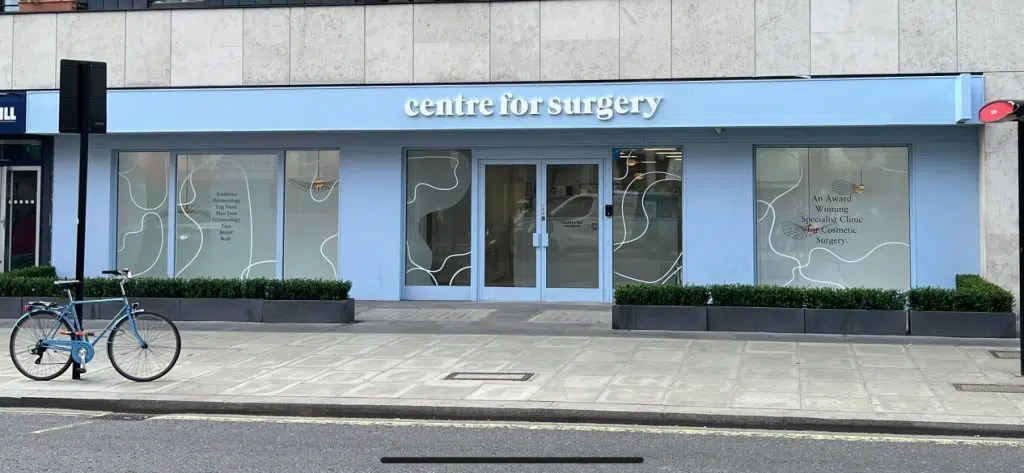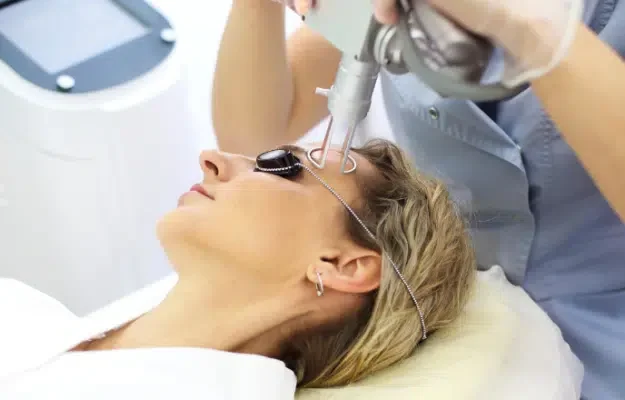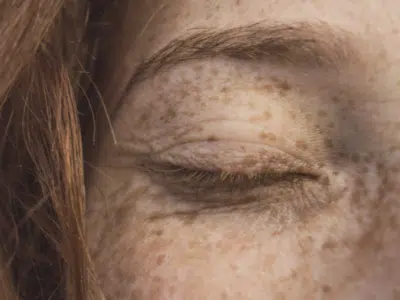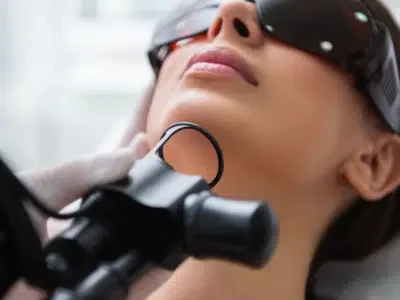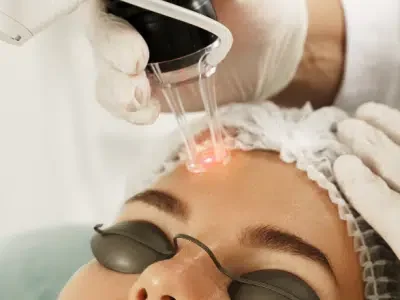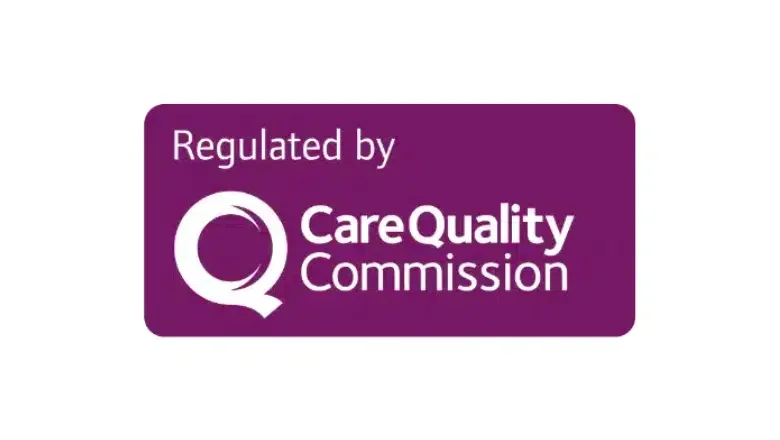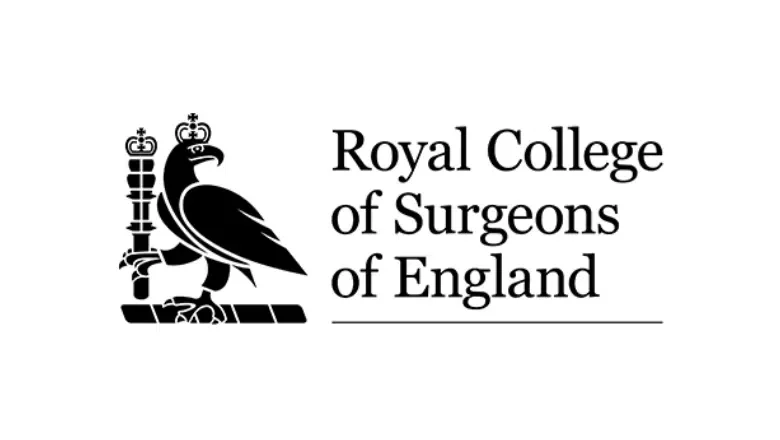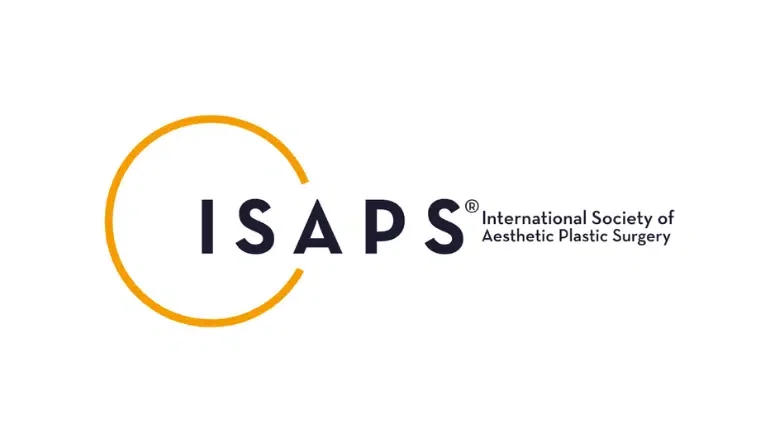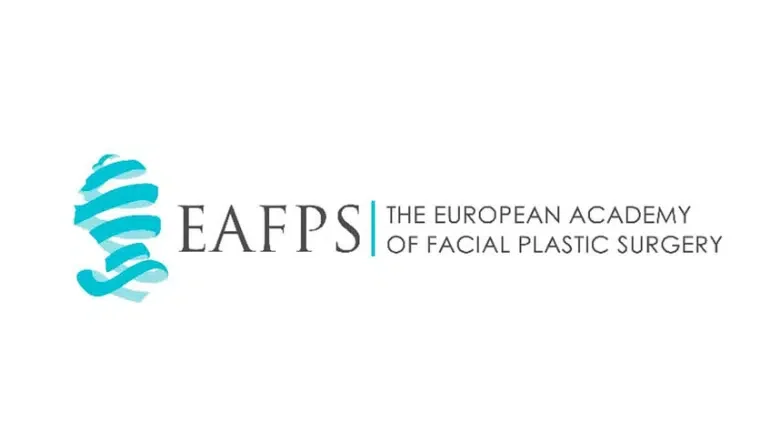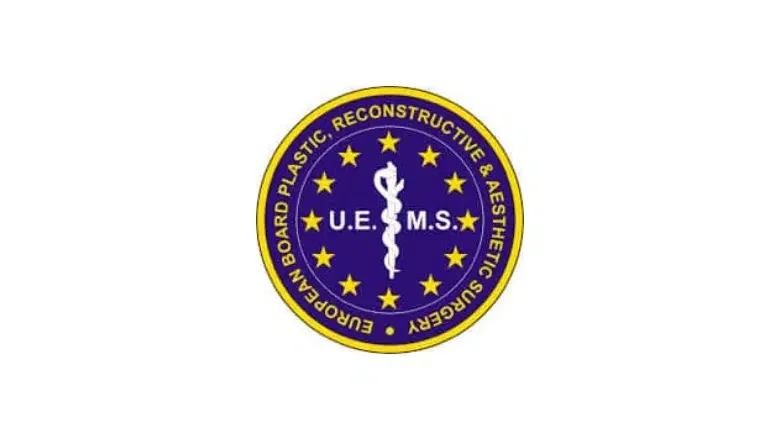It’s one of those harsh realities of life that can really shatter your spirits: discovering that the spots you suffered from in your younger years weren’t simply a temporary stage, as your mum reassured you. Tragically, spots aren’t confined to the teenage years. Yes, indeed, acne in adults is a real thing. What’s even more disheartening is that women seem to bear the brunt of it more frequently than men. It feels like a rather unfair addition to an already hefty list of challenges that women face.
RELATED: Laser Acne Treatment
Regardless, having a spotty face isn’t an unusual sight, even in your thirties, forties or fifties. Some people might even experience the unwelcome surprise of getting acne for the first time as grown-ups. This has a specific term associated with it: “adult-onset acne.”
RELATED: Can acne affect adults?
So, what’s the story behind this? Why are we still dealing with acne when we’re far from our teenage years? In an ideal world, these skin problems would have disappeared when we left our teens. The reality, though, is quite different. There are countless potential causes of adult acne, but if we were to simplify it, we could attribute it largely to two principal factors: hormones and genetics.
Changes in Hormone Levels
The primary culprit behind adult acne is usually fluctuating hormone levels. If anything is causing disturbances in your hormone balance, acne is often one of the first tell-tale signs. It doesn’t matter whether you’re typically prone to breakouts or not, if your hormones are out of balance, you might notice sudden acne flare-ups around the time of your monthly cycle, for example.
Yet, acne can also crop up in other situations where your hormone levels are in a state of flux. Pregnancy is one such instance. If you’ve never seen a spot on your face before, pregnancy could very well be the time when you suddenly notice acne. The silver lining here is that acne related to pregnancy tends to clear up once you’ve given birth. Granted, it’s no fun dealing with spots during the pregnancy, but at least you can find some solace knowing it’s likely to be a temporary situation.
Now, if you’re someone in your fifties, never had a spot in your life, but suddenly wake up one morning with a face full of acne, menopause could be the instigator. This phase of life is often associated with what we’ve previously referred to as “adult-onset acne.”
Another potential source of adult acne could be the birth control you’re using or a medication you’ve recently started taking. If you’ve switched to a new form of contraception, or you’re using one that might not be the best fit for your body, or you’ve recently commenced a new medication, all these elements could potentially trigger unwanted changes in your skin.
Acne in Adults Can Be Inherited
Sometimes, acne could be simply one of those conditions that’s handed down through generations. Do you have relatives who have acne, or who’ve had it in the past? If your mother or sister had to deal with acne, the odds are high that you might have to face it too.
When it comes to genetics, there are different ways it could manifest in acne. Some women might produce too much sebum, a type of skin oil, which can lead to acne. The amount of sebum produced can also vary depending on where a woman is in her menstrual cycle. On the other hand, some individuals might have a slower rate of cell turnover, resulting in blocked pores that can lead to acne. Or, some people might just be “blessed” with a combination of these two factors. It’s a complicated picture, but the bottom line is that if acne runs in your family, you might be more susceptible to it too.
Stress-Induced Adult Acne
Many individuals might be taken aback to learn that stress can trigger acne, but there’s solid scientific reasoning behind this. When we’re under stress, our bodies release hormones known as androgens. These hormones prompt our oil glands into action, increasing their production of skin oil. This excess oil can then clog up our pores, and the outcome is all too familiar: breakouts. So, if you’re regularly experiencing high levels of stress, this could very well be the cause of your recurring acne issues.
A Hidden Medical Condition
In less frequent scenarios, the cause of your acne flare-ups might be a yet undiagnosed medical condition. If there’s no immediately apparent reason for your acne, such as fluctuating hormones, genetic predisposition, or a recent change in medication, it might be wise to book an appointment with a doctor to ensure everything is in order. If there is indeed an underlying health issue and it gets appropriately addressed, it’s highly likely that your skin condition will improve along with your overall health.
How to Treat Adult Acne
So, how do you handle adult acne? Unfortunately, there’s no one-size-fits-all solution. A personalised strategy, combining in-clinic treatments with a suitable at-home skincare routine, will likely serve you best.
We usually recommend in-clinic procedures, such as our specialised acne facial peels. These treatments utilise glycolic acid or salicylic acid peels, which are particularly effective at battling acne. Additionally, we’ve been witnessing impressive results with Morpheus8 RF microneedling treatments. With its distinctive ability to penetrate deeper layers of the skin, Morpheus8 can directly target and destroy the bacteria responsible for causing acne.
Laser acne treatments have also demonstrated considerable effectiveness in eliminating acne-causing bacteria. In terms of skincare products designed to combat acne, you should look for those that contain acne-fighting ingredients such as salicylic acid, glycolic acid, and alanine. These ingredients can all be found in the Obagi ClenziDerm range. Beyond AHAs (Alpha Hydroxy Acids), we’d recommend using retinols and products containing benzoyl peroxide. Essentially, you’re looking for products that provide a deep exfoliation to cleanse your skin of bacteria, and then help maintain it bacteria-free by promoting the formation of protective barriers, ensuring skin hydration, and stimulating collagen production.
Choosing Centre for Surgery for Acne Treatment
Deciding where to seek acne treatment can be a difficult process, but at Centre for Surgery, we’re confident that we can offer you the best care and most effective treatments available. There are several reasons why we stand out as a premier choice for managing adult acne.
RELATED: What is The Best Treatment for Acne?
First and foremost, we’re committed to using cutting-edge technology to deliver high-quality care. Two of our star treatments include the Fotona Nd:YAG Laser and Morpheus8 RF microneedling. Both of these advanced procedures have proven incredibly effective at treating acne.
The Fotona Nd:YAG Laser is a specialised treatment designed to combat acne at its source. It operates by emitting high-intensity light pulses to target and destroy acne-causing bacteria, reducing inflammation and minimising the appearance of acne scars.
Meanwhile, Morpheus8 RF microneedling is a unique technology that delivers deep dermal remodelling. It penetrates the skin at a deeper level, targeting the root cause of acne by eliminating the harmful bacteria that reside beneath the skin’s surface. This treatment not only helps to address active acne but also promotes the production of collagen, leading to healthier and rejuvenated skin over time.
RELATED: What Is The Most Effective Treatment For Acne?
Our commitment to personalised care is another reason to choose us. We understand that every person’s skin is unique, so we work closely with each client to develop a customised treatment plan. Whether you need in-clinic treatments, an at-home skincare routine, or a combination of the two, we’re dedicated to providing solutions that suit you.
The experienced and knowledgeable professionals at Centre for Surgery are always on hand to provide guidance and support. Our team is passionate about skin health and is continually updating their skills and knowledge to ensure that we offer the most effective, up-to-date treatments available.
Choosing Centre for Surgery means choosing high-quality, personalised care. We’re here to help you tackle adult acne head-on and guide you towards clearer, healthier skin.
